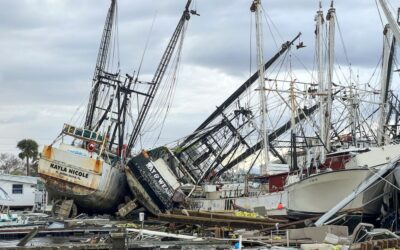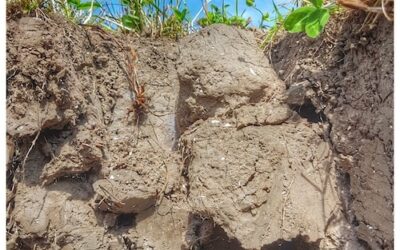This post was originally published on Sustainability Matters

Whyalla’s sewer network faces the problem of highly saline groundwater, which can infiltrate pipes through small cracks and gaps between joists, compromising the quality of the regional city’s recycled water.
“Every day, our wastewater treatment plant turns Whyalla’s number ones and twos into a sustainable supply of recycled water, with around 2.5 million litres delivered to help irrigate the local golf course, ovals and parks,” said SA Water’s Senior Manager of Infrastructure Planning and Strategy, Dr Daniel Hoefel.
“Recycled water is an incredibly valuable source of water given the city’s warmer climate and reduced rainfall, and one of the characteristics we monitor to ensure its quality is salinity levels.”
Now, thanks to a $2 million investment from SA Water, work is underway to restore more than 2700 m of sewer main across the city. This involves relining pipes beneath several of the town’s roads, including Booth Street, Cudmore Terrace, Nicolson Avenue and Playford Avenue.
Relining pipes is a modern technique adopted by water utilities to extend the life of sewer mains. A PVC liner is fed inside a pipe to create a new internal surface and restore its structural integrity.
Hoefel said the utility decided to reline the pipes because conventional treatment plants like the one in Whyalla aren’t able to directly remove the high amount of salt from within the wastewater.
“After investigating sources of this infiltration across our network and undertaking CCTV monitoring of high-risk areas where data indicated high salinity levels, we identified several pipes to be relined,” he said.
“Relining pipes is a far more cost-effective and less invasive approach when compared to replacing a pipe, which is especially beneficial in this location due to the surrounding marine environment.”
SA Water crews will clean each sewer main to ensure they’re clear of blockages before deploying a specialised winding machine into the pipes’ access chambers, Hoefel said. A strip of PVC will then be fed into the machine from an above-ground spool and wound to form a continuous helix with a diameter slightly less than the host pipe.
Work is expected to be complete by mid-2024.
Image caption: As part of relining pipes, a strip of PVC is fed into a machine from an above-ground spool and is wound by locking the edges together to form a continuous helix. Image courtesy of SA Water.





0 Comments